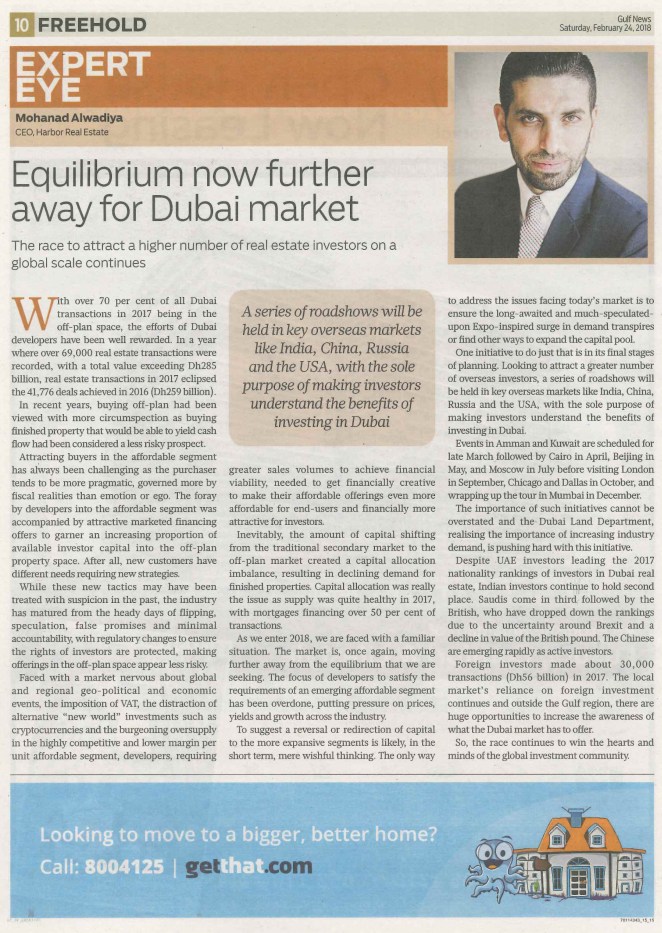Home buying process explained
Purchasing a property in Dubai is relatively straightforward yet, as with the purchase of any property anywhere, there is a series of checks and requirements that must be completed to ensure a successful and issue-free transaction takes place.
Depending on a number of factors, it typically takes between two and six weeks to complete a property transaction.
Financial advisor. The first step is to consult a financial advisor who can help you determine what you can realistically afford.
Pre-approved mortgage. You should then obtain a pre-approved mortgage, if required. This is important as it can prevent any disappointment or embarrassment later on. .
Hiring a real estate broker. Then it is time to select a registered broker or agent. A good property broker will add value by finding the property that meets your requirements, saving you money, minimising your risk, ensuring you are legally compliant and providing you with peace of mind, allowing you to make the best decision possible.
Checking out available properties. Searching for the property of your dreams can be a frustrating and time-consuming experience.
While you can delegate this to your appointed property broker, I recommend you conduct your own search as well.
It will assist you in gaining an appreciation of what product is available in your budget range, where it is located and which facilities and amenities will be able to meet your needs.
It will also show you whether the property that you are seeking is rare or whether availability is high. This is important as it will affect your negotiating ability
Background checks. Once you have identified a property that is of interest to you, your broker should complete all the necessary background checks to ensure there are no impediments to a successful sale.
This would include establishing the ownership status of the property (is it mortgaged?), the occupation of the property, the availability of the owner to negotiate and conclude the transaction, among several other factors.
Making an offer. Assuming all is in order, you may proceed to make an offer.
Memorandum of understanding. Once your offer has been accepted, you will need to sign a memorandum of understanding (MOU) which details the terms, costs and responsibilities of both parties as agreed.
- You will then provide a deposit of 10 per cent of the purchase price of the property.
Property valuation. If you have applied for a mortgage on the property, your bank will be informed as to your intentions and will carry out a valuation on the property. The inspection is typically completed by a third party engaged by the bank to provide professional property valuations.
‘No Objection Certificate.’ Assuming all is in order and the bank gives the go-ahead, the seller will apply for a “No Objection Certificate” (NOC) from the developer.
Make an appointment at the DLD. An appointment is then made with the Dubai Land Department (DLD) to complete the transfer. The seller, buyer, their respective agents and, if necessary, their bank representatives all attend to formalise the transfer. When all documents have been checked and details have been registered, and you have paid the seller of the property, the agency commissions, and 4 per cent transfer fee (plus Dh315) to the DLD, you will receive the title deed.
You can then start celebrating. Your dream house is now in your hands!







